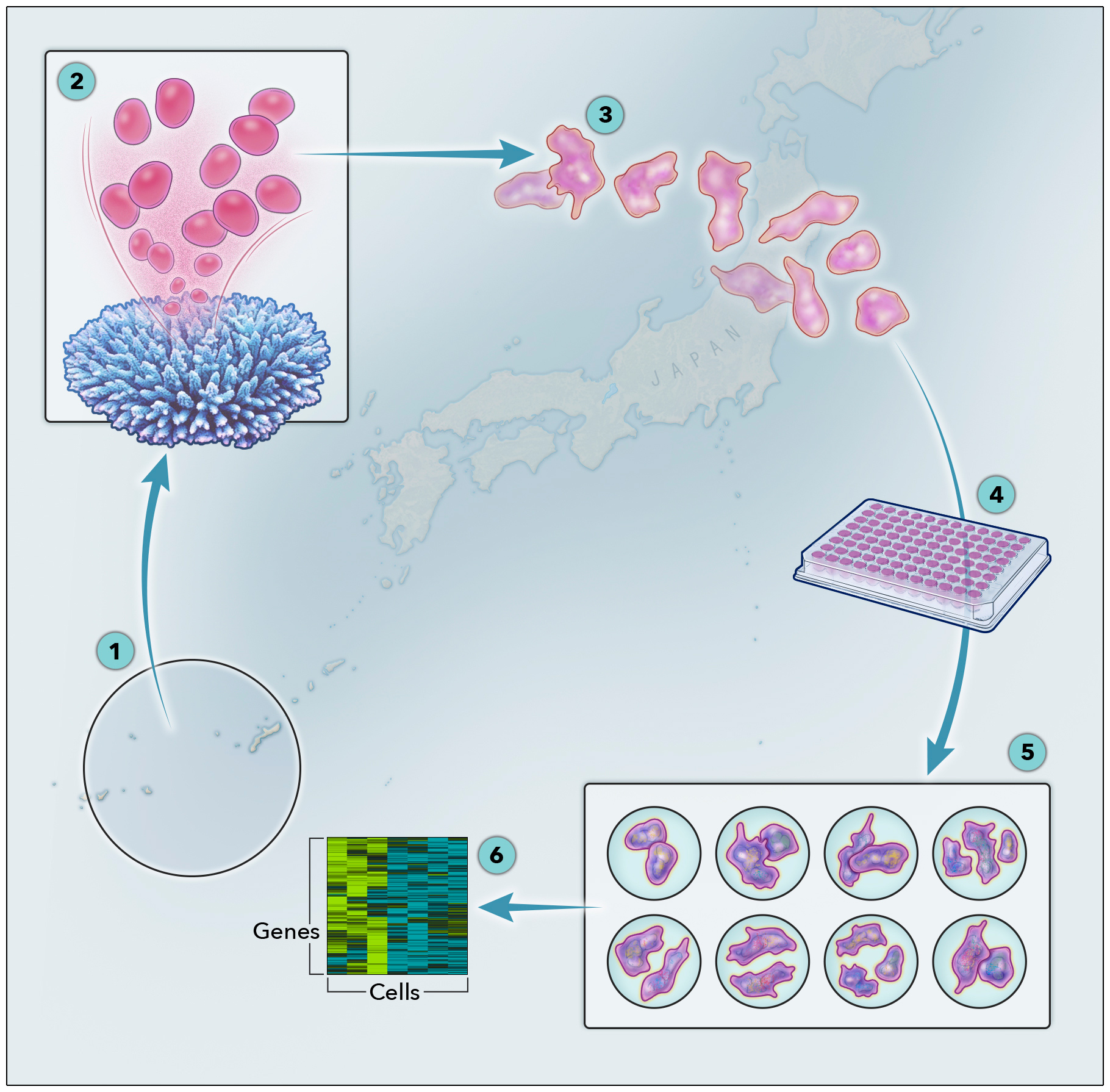ABOVE: © SCOTT LEIGHTON
To isolate cell lines from the reef-building coral Acropora tenuis, researchers first collected adults from two islands in southern Japan (1). In the lab, the team induced the corals to spawn, creating fertilized larvae called planulae (2). Adding a chemical called plasmin to the planulae caused them to dissociate into individual cells (3), which were grown in a special culture medium that contains nutrients and other additives to help them thrive (4). The researchers isolated eight individual lines (5), including monoclonal lines made up of only one type of cell and polyclonal lines that contained multiple types of cells. Each cell type was characterized based on the genes it expressed (6), enabling researchers to match them to suspected corresponding types in adult corals, such as endodermal, skeletal, or neuronal precursors.

Read the full story.
Interested in reading more?





